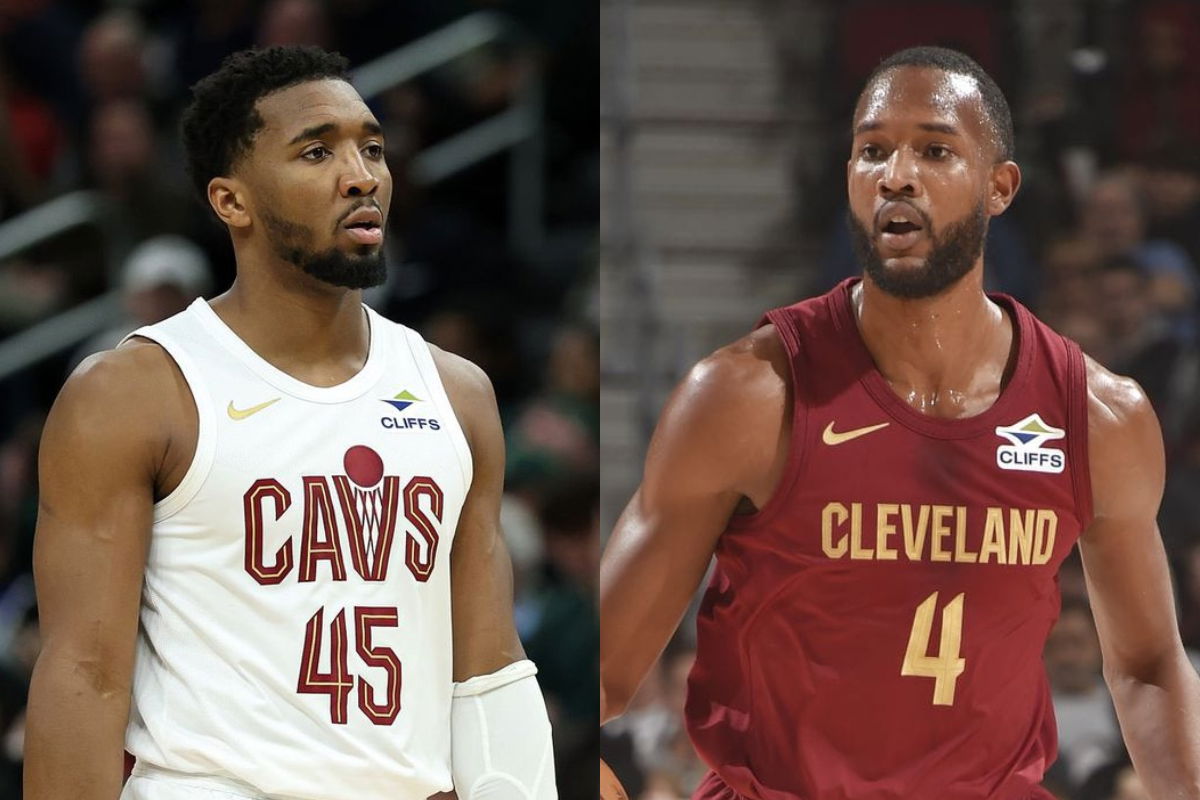
Imago
via Imagn

Imago
via Imagn

Imago
via Imagn

Imago
via Imagn
On the surface, it was just another random November road game in Miami. The Cleveland Cavaliers were in town, the Heat fans were ready, and everyone naturally assumed they’d see Donovan Mitchell and Evan Mobley under the bright lights. Instead… both stars were in street clothes, listed under “rest.”
Watch What’s Trending Now!
Six days later, the real action didn’t come from Bam or Spida. It came from the league office.
The NBA fined the Cavaliers $100,000 for violating the Player Participation Policy (PPP), ruling that Cleveland broke the new load-management rules by resting both Mitchell and Mobley in the same game. And here’s the kicker: the Cavs actually won that game, 130–116. Jarrett Allen dropped 30 and 10, the bench went nuts, and Cleveland walked out of Miami with a W… and still got smacked with a six-figure bill.
Let’s lay out the timeline.
- Nov. 10: The Cavs play the Heat, and the game heads into overtime, with the home side losing. Donovan Mitchell and Evan Mobley both suit up.
- Nov. 12: Same matchup. Mitchell and Mobley are both ruled out for “rest.” Darius Garland is also out, but with a big-toe injury.
- Nov. 13: Back home in Cleveland against the Raptors. Mitchell and Mobley are right back in the lineup.
From the NBA’s perspective, this wasn’t some gray-area situation. It looked like classic load management during Cleveland’s brutal stretch of six games in eight days.
Here’s the funny part: the short-handed Cavs didn’t roll over. Jarrett Allen, as mentioned above, went off for a double-double. The role players stepped up, Cleveland put up 130, and they still handled business. But the league doesn’t care that the Cavs competed; it cares that two healthy, designated star players were voluntarily shelved in the same game.
And under the PPP, that’s precisely what you can’t do.
The fine print behind the $100K Cavaliers fine
The Player Participation Policy was introduced before the 2023-24 season for one reason.
For “star players” defined as anyone who’s been an All-Star or on an All-NBA team in the last three seasons, the rules are pretty straightforward:
- Teams can’t rest more than one star in the same game.
- Stars are expected to play on national TV and In-Season Tournament games.
- Rest has to be balanced between home and road games, one-game absences.
- No long-term “shutdowns” when a player is healthy.
- If a healthy star rests, he still has to be present and visible for fans.
There are exceptions:
- Real injuries
- Personal matters
- Pre-approved back-to-back restrictions (usually for older stars or guys with serious medical histories)

Imago
Feb 23, 2025; Cleveland, Ohio, USA; Cleveland Cavaliers guard Donovan Mitchell (45) reacts during the first half against the Memphis Grizzlies at Rocket Arena. Mandatory Credit: Ken Blaze-Imagn Images
And the penalties escalate fast:
- 1st violation: $100,000
- 2nd violation: $250,000
- 3rd violation: $1.25 million
- Each one after that: add $1 million more than the previous fine
Mitchell and Mobley clearly meet the star criteria. They played on November 10 and 13. But they sat on November 12, and the official designation was rest, not ankle soreness, not illness, not “left knee management.”
According to the NBA’s official wording and the reporting around it, the violation is directly tied to that rest label.
If the Cavs had said Mitchell genuinely tweaked something, or Mobley had a minor flare-up and then sat them both for a few games, you’d at least have a debate. But when both guys:
- Just played an overtime game
- Sit out one night
- Then immediately come back the very next day
…it screams load/schedule management, not health management.
The NBA doesn’t just want stars available in April and May. It wants them visible and active across the 82-game calendar, especially for fans who pay and only see their team or a visiting star once or twice a year.
We’ve already seen teams fined, like the Brooklyn Nets, who got hit with a $100K penalty in early 2024 for a similar move, resting multiple key guys at once. They sat out four players. Four! Spencer Dinwiddie (rest), Dorian Finney-Smith (left knee soreness), Cam Johnson (right knee sprain/injury maintenance) and Nic Claxton (left ankle sprain/injury maintenance).
“We’ve been very clear with teams what we are trying to accomplish, and what we’d like to see,” Joe Dumars, the NBA’s executive vice president and head of basketball operations, told ESPN shortly after the Nets’ fine had been announced. “And, if I’m just cutting to the chase, if you’re going to sit four starters at one time, that’s going to violate the policy and it violates the spirit of what we’re trying to do here.”
Back in 2023, Adam Silver had called the ruling a “changed approach to reinforcing the notion that we’re an 82-game league.”
What this means for the Cleveland Cavaliers going forward
With Mitchell and Mobley both carrying star designations, Cleveland’s margin for error disappears. If one of them needs a breather, the other basically has to be active unless there’s a clear, documented medical reason or a pre-approved exception. It doesn’t matter whether the game is televised or not, as the rules are clearly spelled out.
Remember the rest of the roster context:
- Darius Garland is already juggling a legit toe issue.
- Jarrett Allen has been dealing with his own injury problems at various points.
So J.B. Bickerstaff and the medical staff now face a complex balancing act: protect player health, keep the rotation functional, keep morale steady, and don’t trigger the PPP again.

